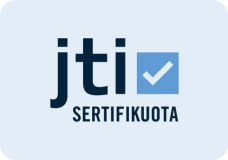Lithuania is raising excise duties on petrol, alcohol, and cigarettes from next year to help fund an increase in defence spending.
As of next year, the price for a litre of petrol will rise by around 7 euro cents, beer by 5 cents, and a pack of cigarettes by 26 cents.
Diesel will see a sharper rise in price due to the previously-adopted 10-cent increase. Therefore, the price for a litre of diesel will now rise by 16 euro cents in 2025. Meanwhile, a litre of LPG will cost an extra 6 euro cents.
Next year, half a litre of beer higher than 5.2% ABV will cost 5 euro cents more than this year. Half a litre of wine below 8.5% will go up by 11 cents, while stronger wine will cost 21 cents more.
Half a litre of alcohol products, up to 15% strong, will cost 35 cents more. Strong alcohol above 37% will also cost 61 cents more.
Meanwhile, a 20-pack of cigarettes will go up in price by 26 cents. A 20-gram cigar or cigarillo will cost 36 cents more, while 20 grams of smoking tobacco will cost an additional 26 cents.
E-cigarette products will also become more expensive, with 2 millilitres of tobacco liquid to cost an extra 0.57 cents.
Excise duty increases are planned to last until 2030 for fuels and until 2027 for alcohol and cigarettes.
The changes are expected to add almost 87 million euros to the state budget next year, 168 million euros in 2026, and 186 million euros in 2027.
Lithuania has also established a special Defence Fund, which will be made up of the so-called solidarity tax on banks, the excise duty increases, and amendments to corporate tax. This will bring an estimated 259 million euros in 2025, 425 million euros in 2026, and almost 444 million euros in 2027.
The amendments aim to increase Lithuania’s defence funding to 3 percent of GDP in 2025–2030.





























